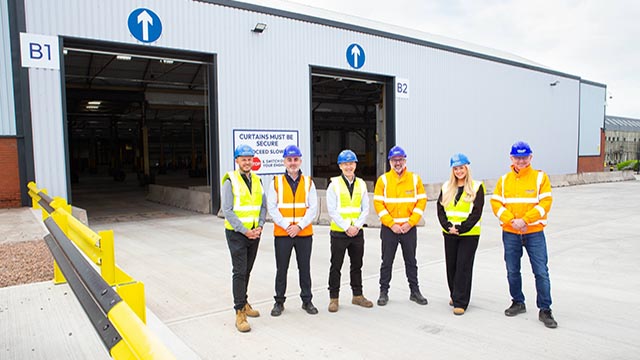COMMENT The availability of data, financial pressures on drug discovery and advances in technology have coalesced to make the convergence of the life sciences and technology an inevitability.
Quantum computing, robotics and automation, AI and software development are all anticipated by the 34 leaders we surveyed to impact them significantly in the coming years.
Bidwells’ Life Sciences 2030 report analyses the responses and uses them to assess the impacts of location and business space, as well as how the UK can best capitalise on the opportunities presented by the convergence between two of the economy’s most high-potential sectors.
Increased utilisation is expected to accelerate across the aforementioned technology types. This is expected to occur at such a scale that distinctions between the two sectors may become blurred.
Adjusting sails
It is expected that tech companies will take the lead in an acquisitive sense, with 56% of those surveyed predicting that there will be a weight towards “technology companies acquiring life science companies” as opposed to 47% believing that the opposite will be more prevalent.
Due to the dominance of US tech companies, it is possible that this may shift the centre of gravity for the UK life sciences sector.
However, as the report highlights, the reality is likely to be much more complex than these statistics suggest. There will be ample opportunity for the UK to benefit by adjusting sails and moving with winds of convergence.
Our report pinpoints three key factors that have the potential to position the UK in very good stead going into the future.
Collaborative relationships can play a significant role. At the moment, two-thirds of AI and machine learning, and robotics and automation providers to UK life sciences businesses are situated outside of the UK. However, 67% of respondents said that, ideally, they would like their technology providers to be UK-based.
Providers in closer proximity cease to be merely providers; face-to-face interactions can help to facilitate a more collaborative style of relationship. Where possible, infrastructure and business ecosystems should encourage face-to-face collaboration. There is a degree of flexibility allowed in this regard.
Although one-fifth of businesses want to be in the same cluster as their tech partners, two-thirds expressed a preference for partners to be located within two hours’ travel.
The strength of UK universities in R&D is another major factor. We are well placed to capitalise on convergence. Indeed, this strength was highlighted by respondents who desire locational proximity to leading researchers in the science and technology fields, and this is a primary locational driver in choosing where to locate their businesses.
Some 56% of the survey respondents said they expect university spin-outs will be their main source of technology solutions for life science applications. Though they will be increasingly vulnerable to overseas acquisition, they will continue to play a vital role in driving convergence among UK industry.
National ambition
The recent decision to rejoin the EU’s Horizon scheme will help to improve access to funding and attract top talent at a time when competition from other centres of excellence internationally is on the rise.
The opportunity offered by the NHS is another weapon in the UK’s armoury. The depth of longitudinal data it holds is a rare treasure coveted by both life science and tech companies. With this data comes the ability to better assess the effectiveness of treatments and impacts on patient outcomes, which in turn facilitates the optimisation of drug and research capability.
While press coverage around the NHS continues to focus on how it is a drain on government resources, there is little acknowledgement of the economic opportunity it can present to businesses. Indeed, the NHS is continuing to invest in data; its 100,000 Genomes project aims to provide a platform that can direct research into fruitful avenues, both in terms of business opportunity and health outcomes.
So while Big Tech represents a takeover threat to UK life sciences, a national vision that takes account of education, skills, infrastructure and funding will enable the UK to capitalise on its strengths and benefit significantly from convergence. A national ambition should realise that becoming a science superpower goes hand in hand with technological strength.
Max Bryan is head of science and technology at Bidwells











